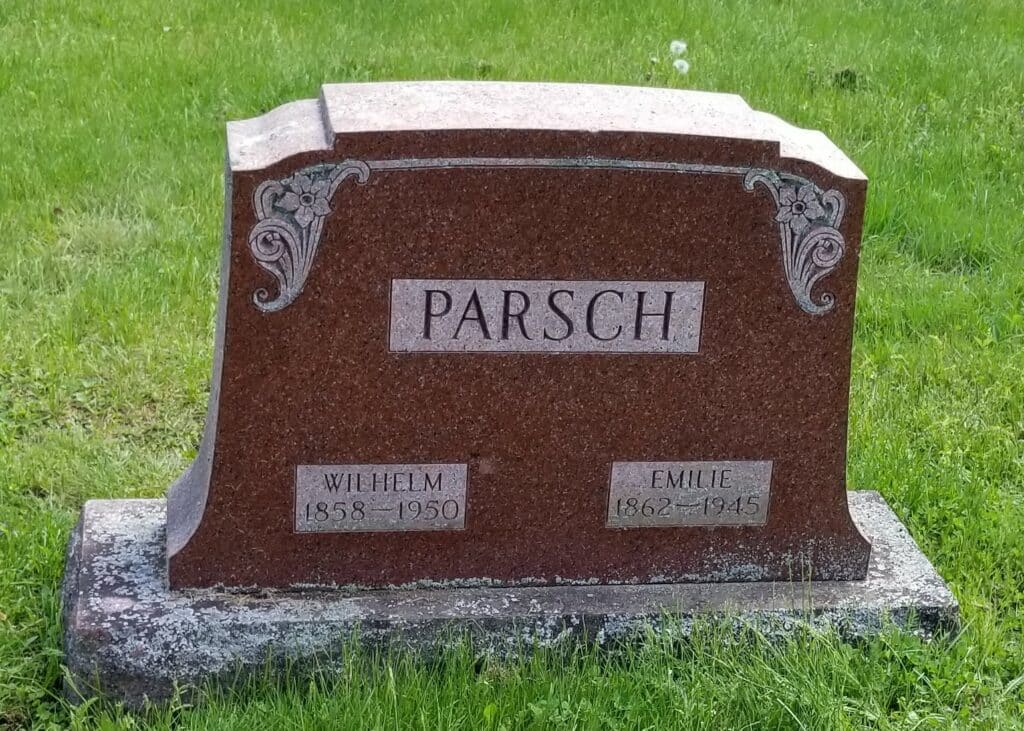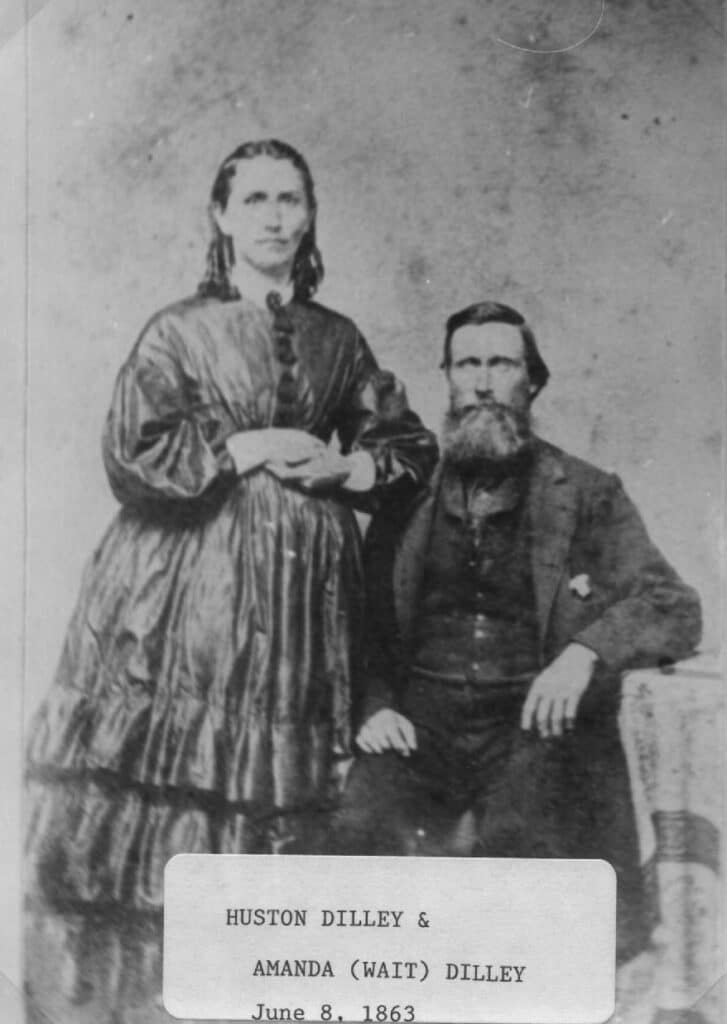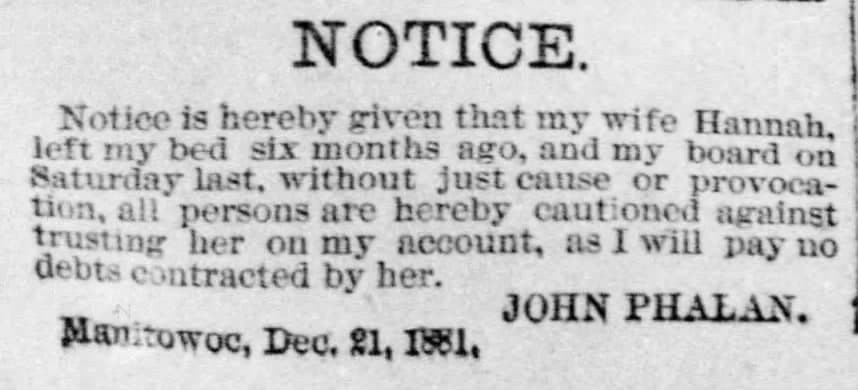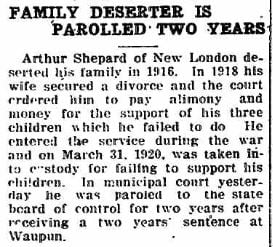Have you ever found out things through your genealogy research that made you raise an eyebrow, or two? How about something that made you pick up the phone, call a family member, and say “guess what!?”
I’ve had those moments, and my parents, who did genealogy the old school way for 50 years, certainly had them as well. One thing that comes from those moments is the knowledge of how to use the records for a deep dive into the personal lives of our ancestors.
Here are a few examples of those “raise an eyebrow” moments my family has had during genealogy research.
1. Tombstones Don’t Always Have the Correct Dates
How many times have you recorded birth and death dates from tombstones? Lots, right? But just because those dates are carved in stone, does not mean that they are “carved in stone.” I was surprised to learn, in fact, how often the dates on tombstones are incorrect.
For example, the birth date carved on my husband’s great-grandfather’s tombstone is 1858. When I found his actual birth and baptism record, however, I discovered that he was actually born in 1860. Did his family ever bother to verify his birth date? Probably not – why would he lie about it? We’ll never know, but his tombstone will forever say that he was two years older than he was.
My husband’s great-grandfather, Wilhelm Parsch, was actually born in 1860, but his tombstone says 1858.
When you are researching your ancestors, make sure to search for the most accurate records you can find regarding birth, marriage, and death dates. These will usually be civil vital records or original church baptism, marriage and death records. You can look up resources on FamilySearch to find specific archives.
Dates recorded on tombstones, in census records, or on immigration records were gathered by verbal report, so they may or may not be accurate and you should not rely on them as confirmed fact.
2. The Local Church Played Matchmaker
My great-great-great grandmother died when she was 40, leaving my great-great-great grandfather a widower with 10 children, one of them an infant. Less than a year later, he married a woman who was 16 years his junior.
How did they meet and get married so quickly? Through some historical research about the area, we found out that the two may have been matched up by the local pastor. Apparently, a person who needed help in finding a spouse sometimes approached the local clergyman for help, and that clergyman would consult his list of unmarried church members for a potential match.
In this case, my ancestor needed a wife to help him raise his children, and the woman he was matched with needed a husband to help support her and her illegitimate child. Works for everyone, right?
My great-great-great grandfather, Huston Dilley, and his second wife, Amanda Wait Dilley, were matched up by the local pastor.
While marriage records don’t always reflect this circumstance, knowing some history about the local area can shed light on the customs of the day and help you to determine how, when and why events happened for your ancestors. Local historical societies are the best places to find this kind of information.
3. “Happily Ever After” Didn’t Always Happen
While many people in your family tree may have stayed married for many years, marital bliss was not had by everyone. During my research, I was taken aback when I learned that divorce isn’t a (even mildly) recent phenomenon, but that people got divorced throughout history (when they had a right to do so, of course).
I first encountered this while researching my children’s family tree. A relative sent me a packet of copies of newspaper articles mentioning family members from the 1800s. In one of them, the ancestor had placed an ad in the local paper stating that his wife had left his home and his bed.
This newspaper ad is very similar to the one posted by my children’s ancestor.
Since I was mildly shocked to read this in a paper from the 1880s, I inquired about it, and found out that people would place ads like this in local papers to document the start date of an abandonment case. After a spouse was gone for one year, the remaining spouse could sue for and win a divorce case.
If you have divorce cases in your family tree, search for old local newspapers from the time and see if you can find any articles or ads documenting the circumstances of the divorce. You might be surprised what you read! There are an increasing number of old newspapers digitized online, so a search through a free one like Chronicling America, or paid options such as Newspapers.com or Genealogy Bank might be worth it. The local public or LDS library may also have copies or images of old newspapers.
4. Sometimes Your Ancestors Had Unsavory Professions
Did Grandpa have a side gig that the family whispered about behind closed doors? This question is actually easier to answer than you would think, by searching old court records. Some of the oldest court records in America have been published in book form and are searchable online.
For example, for many years my family has tried to confirm the identity of my father’s earliest ancestor in America. One of the prime candidates was a ship’s captain who made money on the side by kidnapping young people in Ireland and shipping them to America for indentured service.
An early court record from Salem, Massachusetts narrates the circumstances surrounding one of these cases, citing the bill of sale between the ship’s captain and a land owner who purchased two Irish young men, taken against their will and sold for 9 years of indentured service.
An excerpt from testimony regarding the legality of the indenture of two young men. George Dell, the captain of the Goodfellow, may be my ancestor.
The record appears in a book titled Records and Files of the Quarterly Courts of Essex County, Massachusetts, Volume II that was published in 1912. These old published record books are worth a search and many of them have been digitized. Since the copyrights have expired, you can access them through online libraries like the Digital Public Library of America or even Google Books.
5. Can’t Find Grandpa on the Census? Maybe He’s in Jail.
My grandmother’s father was a classic deadbeat dad. When he left the family for the third time, my great-grandmother had had enough and she sued for divorce. We knew all that, and we knew that he was really angry and refused to pay child support, but we were kind of surprised to find it all documented in the paper!
He had been arrested due to his failure to pay and was sentenced to jail time because of it. This newspaper article from 1920 gives a brief summary of the whole story, including his jail sentence and his good fortune to receive parole shortly after.
This brief news article documents how my great-grandfather, Arthur Shepard, deserted his family and paid for it.
If you have a “sketchy” ancestor, you can check several sources to find out details about their problems. Local court records will provide the most detail, but old newspapers are also a great place to check. Find the sections that report on crime, court cases, and social activities.
Also, if your ancestor isn’t where he’s supposed to be on a census, be sure to do a search of local jails or state prisons. You will need to research where these were located during your ancestor’s lifetime.
6. Hey, You Might Be Related to Someone Famous! But What Else Will You Find?
At one point in their family history activities, my parents were diligently researching their Dutch ancestral lines in old Dutch church records from Kingston, New York. These records were transcribed and published in hardcover books. They became very excited when they found out that my mom had a connection to the Roosevelt family, being distantly related to both Franklin D. Roosevelt and Theodore Roosevelt.
A while later, after some in-depth research on my dad’s Dutch line, my parents found out something else. Yep, they were related to each other! I remember them telling us “Well, we’re both so into genealogy, we knew we would find it eventually.” Fortunately, they are so distantly related that there’s really no concern.
This marriage record, from 1679, shows my ancestors that connected my parents to the Roosevelt family…and to each other.
If you have ancestors from New England or the Mid-Atlantic states, you may be fortunate to be able to use these old published records in your research. Church records, court records, and town histories often contain vital record information, as well as land purchases and sometimes stories from the area. Many of these books have been digitized and you can find them online, often for free through Digital Public Library of America, Internet Archive, or Google Books.
So, the next time you find some information about your ancestor that seems out of the norm, do a thorough investigation of the circumstances. Local church records, court records, old newspapers, and published books can help you do this. A knowledge of the area where your ancestors lived and its customs will also help. You may be surprised when you finally uncover the truth!
For more help with these resources, including how to find and access them (often at no cost), visit Family History Daily’s course center.







This article was very interesting. Many times I have discovered, that dates are wrong on census & other documents. Although I hadn’t realised that Headstones might also be wrong. I also suspect that the information given on a death certificate by a son in law about the deceased mother might be wrong, but finding it hard to prove. Thank you for sharing this with us.